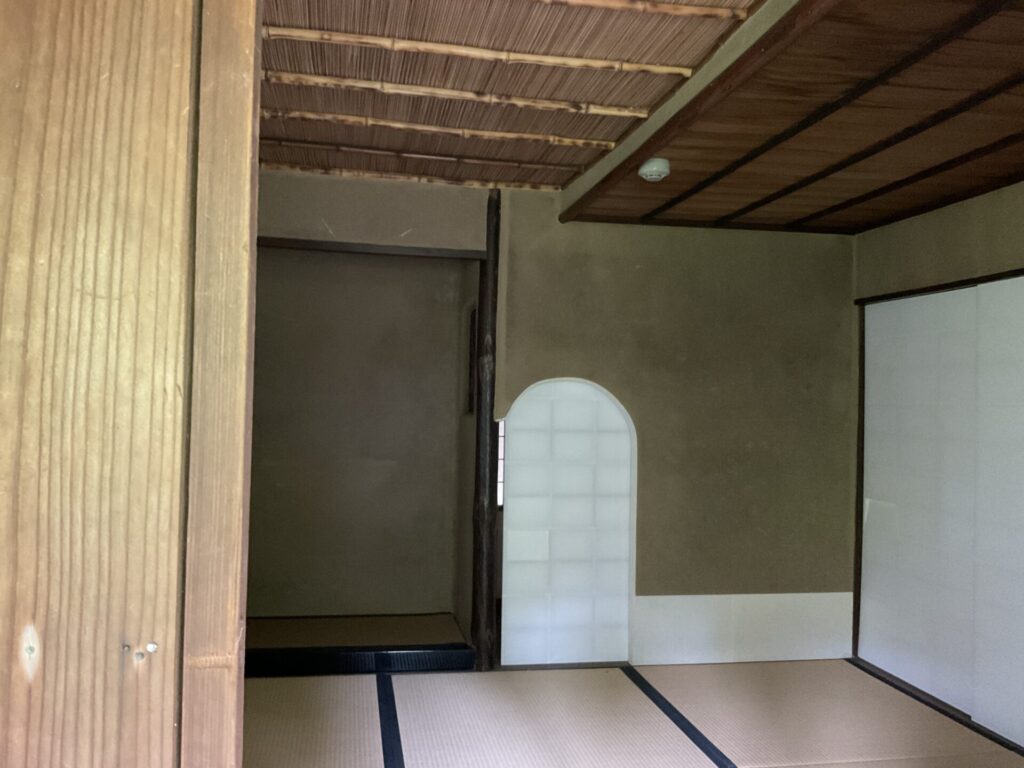昨日に次いで武士の話題
Continuing the topic of samurai from yesterday…
武士の好んだものに、茶道がありますね。茶道は、非日常を味わう場所であったとされています。生死をかけた戦いが日常であった戦国時代の武士たちにとって、茶室は休息の場であったことが想像できます。
The samurai had a preference for tea ceremony, which was considered a place to forget daily life. It can be imagined that the tea room was a place of rest for the samurai who lived in an era where life-and-death battles were part of their daily lives during the Warring States period.
日常を忘れるために、茶室には様々なきまりがあります。武士の印である刀を持ち込んではならない。にじり口から頭を下げて入る。これらは、茶室の中ではどんな身分の人も平等になる、ということを表しているそうです。
In order to forget the daily life, there were various rules in the tea room. One must not bring in the sword, which is a symbol of the samurai. One must enter by bowing their head from the nijiriguchi (crawling-in entrance). These rules signify that inside the tea room, everyone, regardless of their social status, is equal.
明治以前の日本は、身分制社会でした。人の内面や人間性ではなく身分を見ることが当然だった時代、茶室はその人そのものに出会う貴重な場所だったのでしょう。
In pre-Meiji era Japan, society was stratified by social classes, and it was common to judge people based on their social status rather than their inner qualities or humanity. During that time, the tea room was a precious space where one could encounter the essence of a person beyond their social standing.
茶室は、様々な広さのものがありますが、戦国武将たちが好んだ茶室は、2〜6畳の狭い空間だったと考えられます。相手の息遣いがすぐ近くに感じられる、濃厚な空間です。
The tea rooms favored by many samurais during the Warring States period were small spaces ranging from 2 to 6 tatami mats in size. These compact spaces allowed for a close proximity and intense atmosphere where one could keenly feel the presence of the other person.

明日の命も分からない武士たちが、個人対個人の対話が許される茶室の中で、何を語り何を感じたのか、興味は尽きません。
I wonder what samurais of the Warring States period, who faced the uncertainty of life and death, might have spoken about and felt during personal conversations in a tea room, where they were able to engage in equal and intimate interactions.


コメント